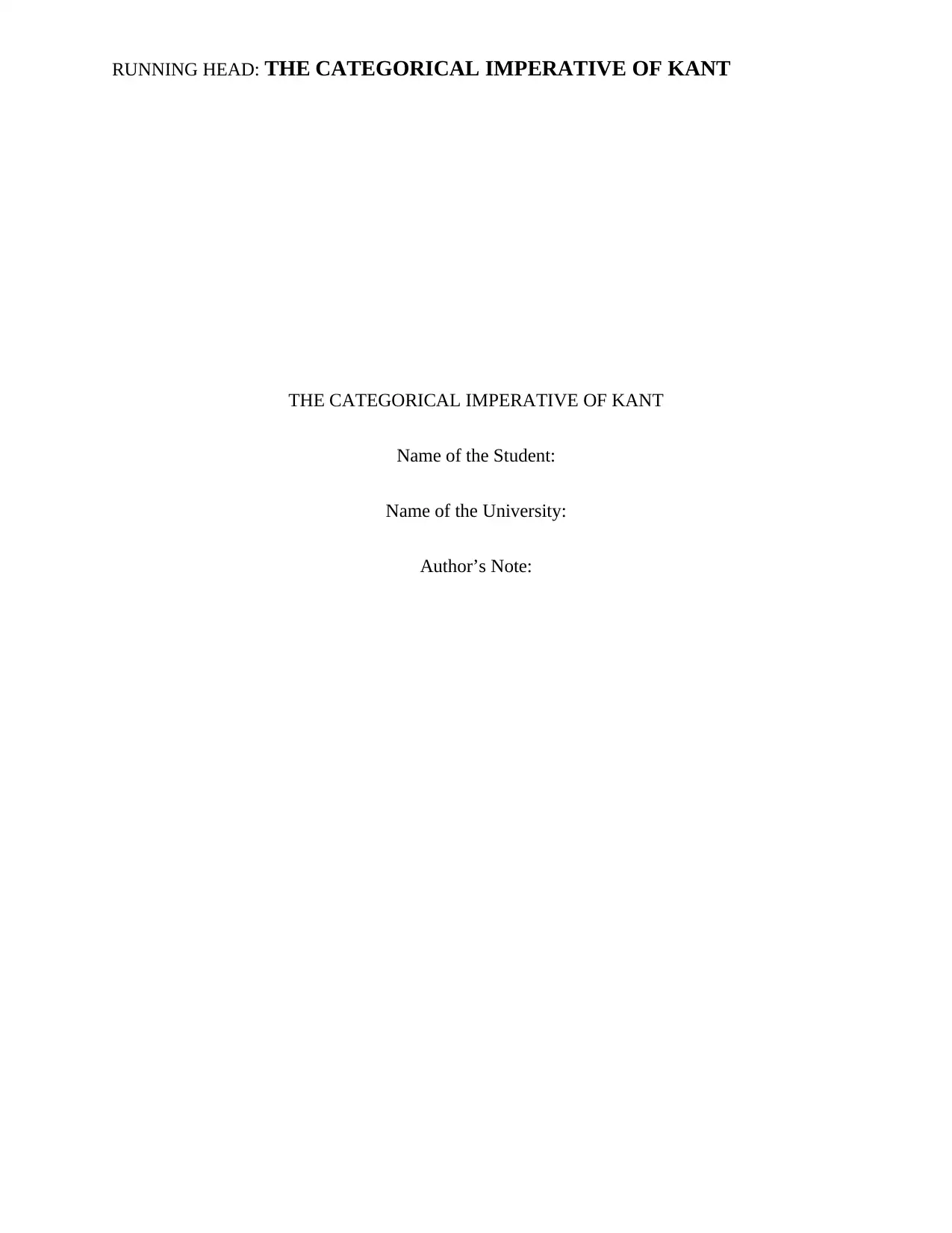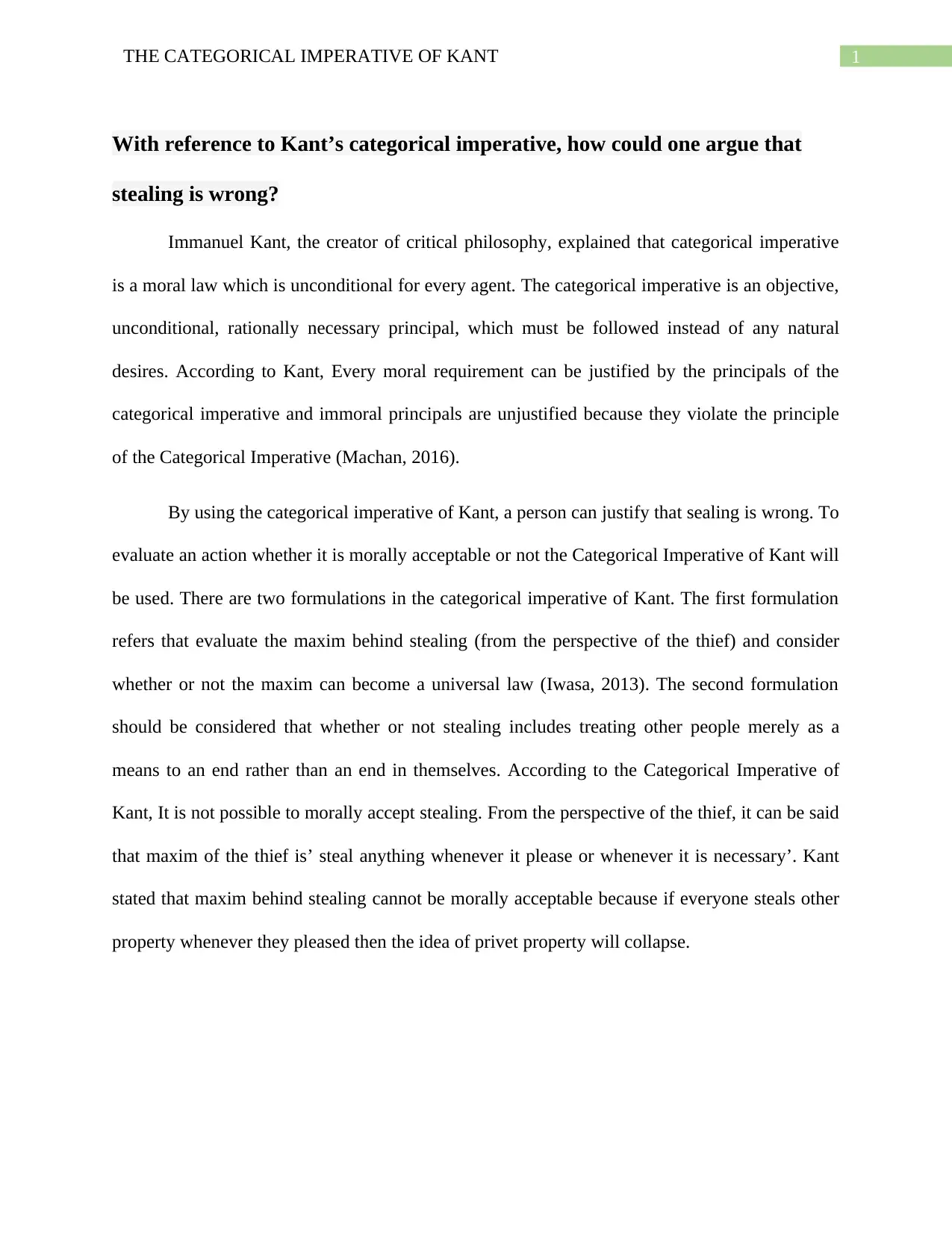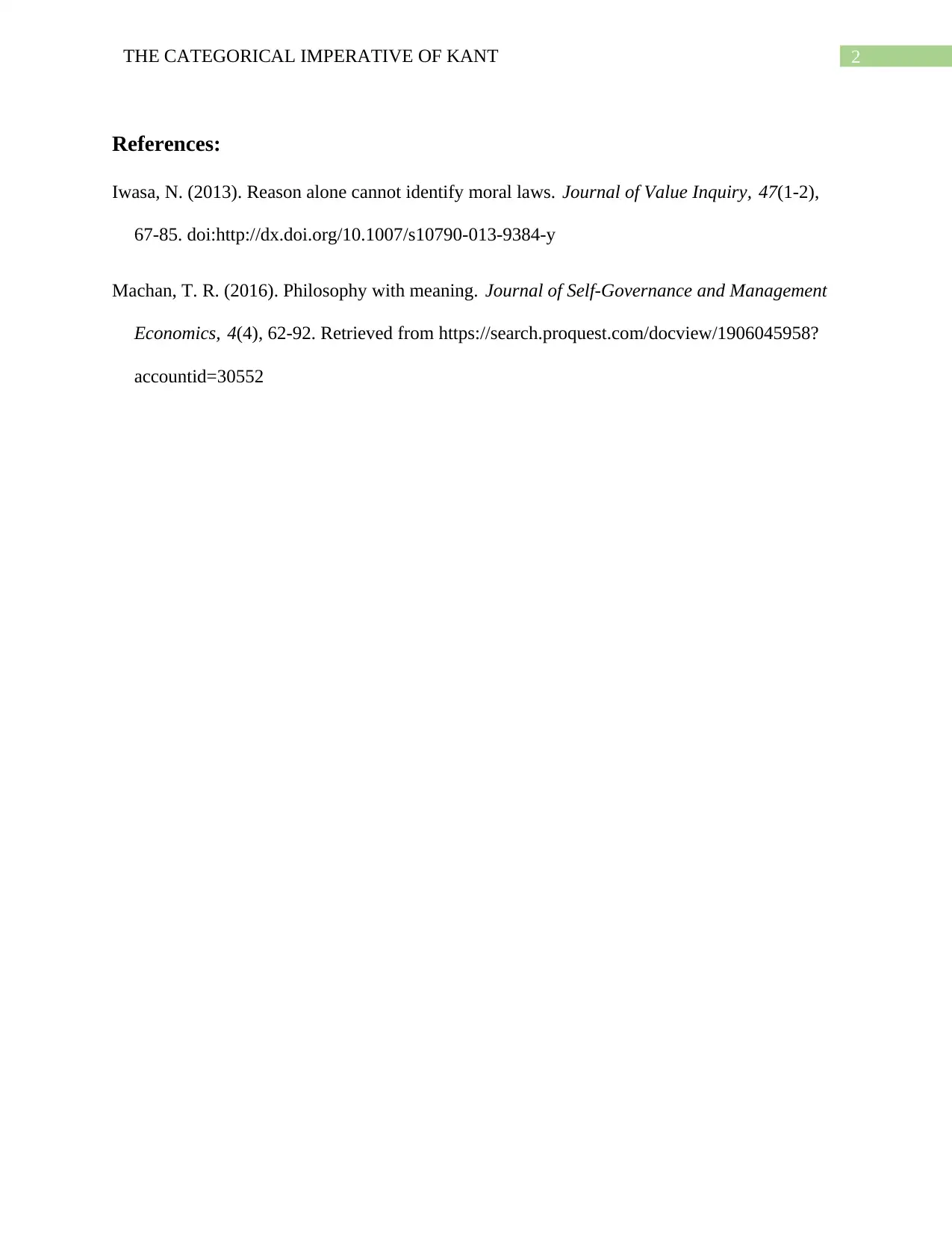An Examination of Kant's Categorical Imperative Regarding Morality
VerifiedAdded on 2022/08/22
|3
|397
|18
Essay
AI Summary
This essay examines Immanuel Kant's Categorical Imperative and its relevance to the moral issue of stealing. It begins by explaining the core principles of Kant's ethical framework, including the concept of unconditional moral laws and the importance of treating individuals as ends in themselves rather than mere means. The essay then applies these principles to the act of stealing, analyzing it through the lens of Kant's first and second formulations of the Categorical Imperative. It argues that stealing is morally unacceptable because it cannot be universalized and because it violates the principle of treating others with respect. The essay references Kant's ideas and provides a concise analysis of the implications of Kant's philosophy. This essay provides a valuable resource for students studying philosophy and ethics, offering a clear and concise explanation of Kant's ideas and their application to a specific moral dilemma.
1 out of 3







![[object Object]](/_next/static/media/star-bottom.7253800d.svg)